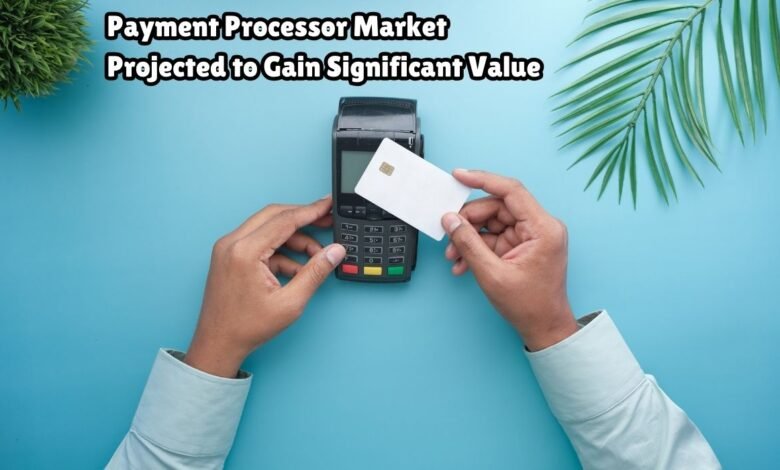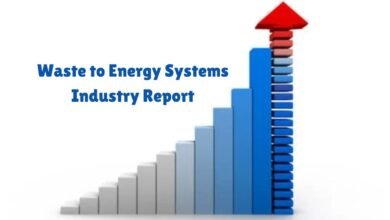Payment Processor Market Projected to Gain Significant Value
Payment Processor Market projected for significant growth, driven by increasing digital transactions and evolving payment technologies.

The payment processor market plays a pivotal role in the contemporary financial ecosystem, serving as the backbone for the seamless execution of transactions between buyers and sellers. Payment processors are entities that handle the processing of financial transactions, ensuring that payments are securely and efficiently transferred from the buyer’s account to the seller’s account. This market comprises various types of payment processors, including merchant acquirers and payment gateways.
Merchant acquirers are financial institutions that process credit and debit card transactions on behalf of merchants. They act as intermediaries, facilitating the transfer of funds from the buyer’s account to the seller’s account, while ensuring compliance with various regulatory requirements. Payment gateways, on the other hand, are technology platforms that enable online merchants to accept payments through their websites or mobile applications. These gateways securely encrypt payment information, authenticate transactions, and facilitate communication between the merchant’s website and the acquiring bank.
The payment processor market has seen substantial growth in recent years, driven by the surge in e-commerce activities and the increasing adoption of digital payment methods. The global market size for payment processors is projected to expand significantly, reflecting the growing importance of these entities in both online and offline business environments. Payment processors are essential for enabling businesses to offer a wide range of payment options to their customers, thereby enhancing customer satisfaction and driving sales growth.
Moreover, the rise of innovative payment technologies and the proliferation of smartphones have further fueled the market’s expansion. As consumers increasingly prefer cashless transactions, the demand for reliable and secure payment processing solutions continues to rise. In this dynamic landscape, payment processors must continuously evolve to meet the changing needs of businesses and consumers, ensuring a seamless and secure payment experience for all parties involved.
Factors Driving Market Growth
The payment processor market is experiencing substantial growth due to several converging factors, each playing a pivotal role in shaping the market’s trajectory. Understanding these factors provides insights into the dynamic landscape and the forces propelling the market forward.
1. Rise of E-commerce: The proliferation of e-commerce platforms has significantly boosted the demand for efficient payment processing solutions. With online shopping becoming the norm, payment processors are essential for enabling secure and seamless transactions. In 2022, global e-commerce sales reached $5.2 trillion, underscoring the critical need for robust payment processing infrastructure.
2. Increasing Adoption of Digital Payments: The shift from cash-based transactions to digital payments has accelerated in recent years. Mobile wallets, peer-to-peer payment apps, and online banking services are gaining widespread acceptance. For instance, in the United States alone, the use of mobile payment services grew by 29% in 2021, highlighting the growing preference for digital payment methods.
3. Advancements in Payment Technology: Technological innovations are revolutionizing the payment processing industry. The integration of artificial intelligence, blockchain, and biometric authentication enhances the security and efficiency of payment systems. These advancements reduce fraud risks and streamline transaction processes, making them attractive to both merchants and consumers.
4. Growing Demand for Contactless Payments: The COVID-19 pandemic has significantly influenced consumer behavior, leading to a surge in contactless payment methods. With concerns over hygiene and the need for social distancing, contactless payments offer a convenient and safe alternative. According to a report by Juniper Research, the value of contactless payments is projected to exceed $6 trillion by 2024, driven by the increasing adoption of near-field communication (NFC) technology.
Collectively, these factors are driving the robust growth of the payment processor market. As e-commerce continues to expand, digital payments become more prevalent, technological advancements evolve, and the demand for contactless payments rises, the market is poised for significant value gains in the foreseeable future.
Key Players and Competitive Landscape
The payment processor market is characterized by a few dominant companies that have shaped and continue to influence its trajectory. Notable key players include PayPal, Square, Stripe, and Adyen, among others. Each company brings unique strengths and innovations to the market, contributing to a competitive and dynamic landscape.
PayPal: As one of the pioneers in digital payments, PayPal has a robust and widespread presence. The company has continually expanded its services to include mobile payments, peer-to-peer transfers through Venmo, and even cryptocurrency transactions.
- Acquisition of Honey in 2020 to enhance customer engagement and e-commerce capabilities.
- Partnership with Visa and MasterCard to broaden its reach and acceptance.
- Innovations in fraud detection and security to ensure safe transactions.
Square: Known for its user-friendly point-of-sale systems and merchant services, Square has rapidly grown its market share. The company has diversified its offerings to include financial services for small businesses and individuals through Cash App.
- Acquisition of Afterpay in 2021 to enter the buy now, pay later (BNPL) market.
- Introduction of Square Terminal and Square Register for comprehensive in-store solutions.
- Focus on integrating cryptocurrency transactions and banking services.
Stripe: Stripe has emerged as a significant player, particularly in the e-commerce sector. Its API-driven approach allows businesses to seamlessly integrate payment processing capabilities into their platforms.
- Expansion into international markets, including partnerships with major banks.
- Investment in Stripe Capital to provide financing solutions to businesses.
- Focus on advanced machine learning for fraud prevention and risk management.
Adyen: Adyen offers a globally unified payment solution, catering to large enterprises. Its single platform approach simplifies payment processing across various channels and geographies.
- Partnerships with key companies like eBay to handle global transactions.
- Emphasis on real-time data analytics for better business insights.
- Continuous enhancement of payment methods to include local and alternative payment options.
The competitive landscape of the payment processor market is dynamic, characterized by frequent mergers and acquisitions, strategic partnerships, and constant innovation. Companies are investing heavily in technology to stay ahead, with a significant focus on security, user experience, and expanding their service offerings to capture a larger market share.
- Business Owners Should Know About These 5 AI Tools
- The Top 6 Bookkeeping Software for Small Businesses and Freelancers
- The 8 Most Important Ethereum Hard Forks in Order
Payment Processor Market Future Outlook and Trends
As the payment processor market continues to evolve, several key trends and developments are anticipated to shape its future. One significant trend is the increasing integration of blockchain technology. Blockchain offers enhanced security, transparency, and efficiency in transactions, which are highly valuable in the payment processing industry. As a result, more payment processors are expected to adopt blockchain solutions to improve their service offerings and gain a competitive edge.
The rise of mobile payments is another major trend that will impact the market. With the proliferation of smartphones and the growing preference for contactless payments, mobile payment solutions are becoming increasingly popular. Payment processors are likely to invest heavily in mobile payment technologies to cater to this demand, providing seamless and secure payment experiences for consumers and businesses alike.
Regulatory changes will also play a crucial role in shaping the future of the payment processor market. Governments and regulatory bodies worldwide are continually updating policies to address the evolving landscape of digital payments. Payment processors must stay abreast of these changes to ensure compliance and avoid potential legal issues. These regulatory developments may also drive innovation as companies seek to adapt to new requirements and standards.
Artificial intelligence (AI) is set to revolutionize payment processing by enhancing fraud detection, streamlining operations, and improving customer service. AI algorithms can analyze vast amounts of transaction data in real-time, identifying suspicious activities and preventing fraudulent transactions. Additionally, AI-powered chatbots and virtual assistants can provide instant support to customers, resolving issues quickly and efficiently.
Market projections indicate significant growth for the payment processor market in the coming years. Analysts forecast substantial increases in transaction volumes and revenues as more businesses and consumers adopt digital payment solutions. The ongoing advancements in technology and the increasing demand for secure, efficient payment methods will drive this growth, solidifying the payment processor market’s position as a critical component of the global financial ecosystem.



